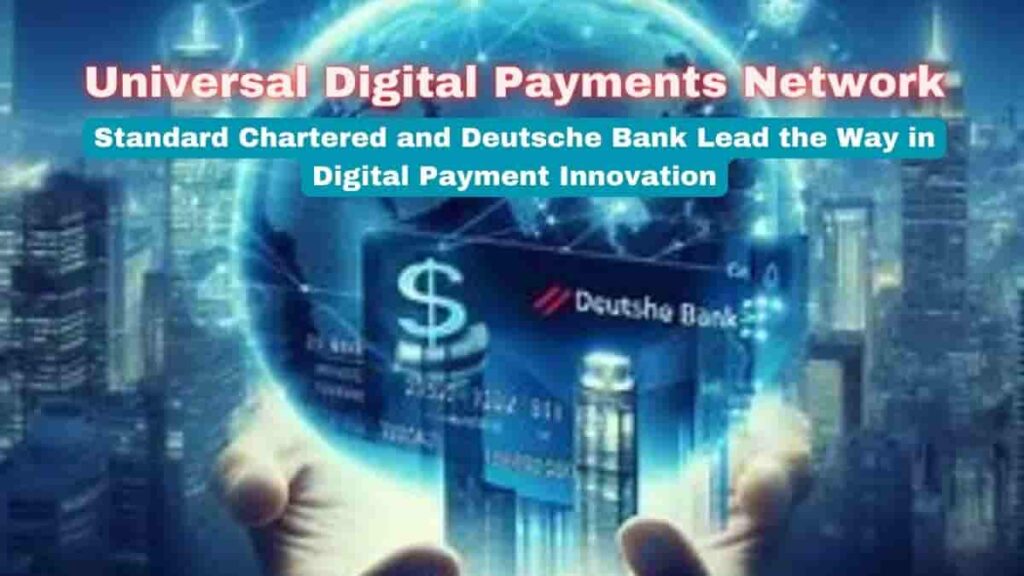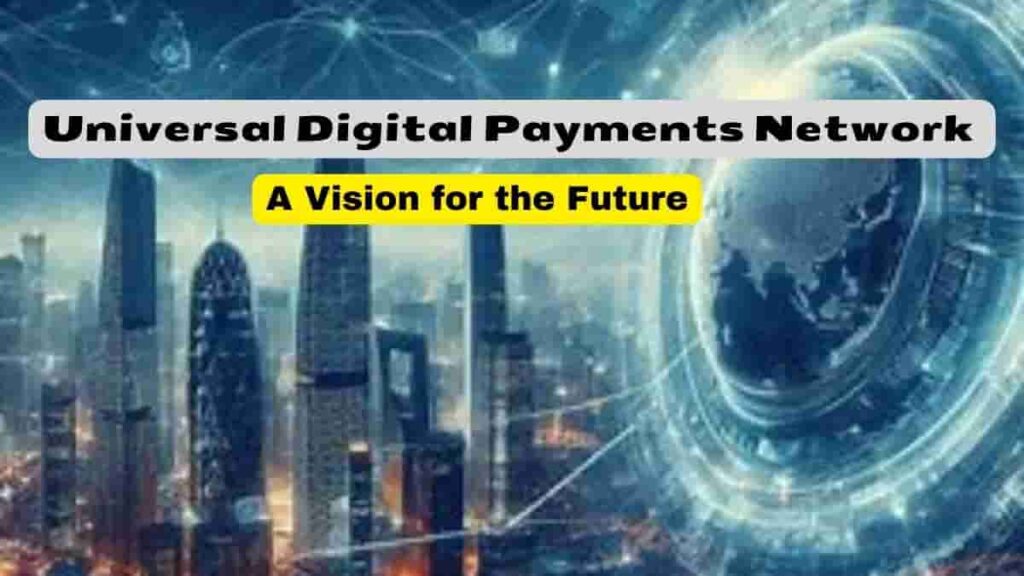In a remarkable stride towards financial innovation, Standard Chartered’s SC Ventures and Deutsche Bank have successfully completed the first proof of concept (PoC) for the Universal Digital Payments Network (UDPN). This groundbreaking development marks a significant leap in the world of digital payments, offering a glimpse into the future of financial transactions.

The Birth of Universal Digital Payments Network (UDPN)
The Universal Digital Payments Network, often likened to a blockchain-based version of Swift, aims to bridge the gap between stablecoins and central bank digital currencies (CBDCs). This innovative blockchain-based messaging system facilitates interoperability and compliance with financial regulations. It’s a collaborative effort involving key players like Red Date Technology, GFT, and leading financial service providers.
A Solution to Adoption Barriers
UDPN’s primary mission is to address the adoption challenges that current digital asset offerings face. It offers a pathway to interoperability between fiat-backed tokens of stablecoins and regulated protocols. Marika Lulay, CEO of GFT, emphasizes the network’s potential: “The decentralized approach and the wide geographic reach of participating firms, combined with advanced technological solutions, set this network apart.”
SC Ventures and Deutsche Bank: Leading the Way
During the PoC, SC Ventures created a development environment and harnessed Universal Digital Payments Network (UDPN) software development kits (SDKs) and APIs to establish decentralized identities and connect them to digital currency wallets. They seamlessly initiated transfers and swaps of synthetic USDC and EURS to digital wallets controlled by Deutsche Bank. All transactions were securely signed, and transaction data was readily accessible via Ethereum explorers.
Deutsche Bank reciprocated by initiating transfers and swaps in SC Ventures’ digital currency accounts, utilizing a graphical user interface integrated within their dedicated UDPN environment. Both banks leveraged UDPN business nodes to access the permissioned network, with one node handling USDC transactions and the other managing EURS transactions.

Universal Digital Payments Network: A Vision for the Future
Rafael Otero, CTO and CPO of Deutsche Bank’s Corporate Bank division expressed the significance of this initiative: “For Deutsche Bank, the industry pilot on the UDPN platform is an opportunity to investigate and research how we can enable our clients to actively participate in the decentralized future global economy and benefit from applications that are built on top of the network. This is the next logical step in the development of financial transactions.”
UDPN’s Promising Future
The successful digital currency transfer and swap PoC is the first in a series of 12 PoCs designed to explore UDPN’s full potential. Stakeholders believe that this PoC plays a vital role in shaping the success of UDPN and fostering a deeper understanding and collaboration among those involved. The network is projected to be commercially available by the end of 2023.
Future PoCs will delve into a variety of other topics, including enabling banks to issue deposit tokens for client use or interbank wholesale settlement, and the ability to facilitate gasless transactions on a public blockchain.
Embracing the Future of Money
Thorsten Neumann, CTO of SC Ventures, shares a visionary perspective: “Tokenized forms of currency will inevitably become a part of the new financial landscape. Financial service providers and fintechs are well-positioned to experiment with stablecoins and CBDC use-cases that benefit from the finality of on-chain transactions.”
The UDPN Alliance envisions a future where money is digital, sovereign, and regulated. They see the current payment infrastructure as analog, fragmented, and expensive. Digital money, in their eyes, promises simpler, cheaper, and faster cross-border transactions. The financial world is on the cusp of a digital revolution, and Standard Chartered and Deutsche Bank are at the forefront, leading the way.
FAQs:
Q. What is UDPN’s main goal?
UDPN aims to enable interoperability between stablecoins and regulated protocols, offering an alternative to existing payment systems.
Q. Who are the key players behind UDPN’s development?
Red Date Technology, GFT, and multiple tier 1 financial service providers played pivotal roles in co-developing UDPN.
Q. What is the significance of the recent PoC for UDPN?
It is the first in a series of PoCs exploring UDPN’s functionality and fostering understanding among stakeholders.
Q. When will UDPN be commercially available?
UDPN is expected to be available for commercial use by the end of 2023.
Q. What topics will future PoCs explore?
Future PoCs will investigate various aspects, including enabling banks to issue deposit tokens and facilitating gasless transactions on a public blockchain.
Q. How does UDPN envision the future of money?
UDPN sees the future as digital, sovereign, and regulated, offering simpler, cheaper, and faster cross-border transactions.
Conclusion
In conclusion, the successful completion of the Universal Digital Payments Network’s first PoC signifies a giant leap in the realm of digital payments. Standard Chartered and Deutsche Bank’s collaborative effort showcases the potential of this innovative blockchain-based system. As the financial landscape evolves, we can expect more exciting developments that promise to simplify and expedite cross-border transactions. The future of finance is digital, and UDPN is helping to pave the way.
Disclaimer: The information provided in this article is for informational purposes only. The content reflects the author’s views at the time of publication and does not constitute financial, investment, or legal advice. Readers are encouraged to conduct their own research and consult with relevant professionals before making any financial decisions. “Cryptowini” and the article’s author do not assume any responsibility for the accuracy or completeness of the information provided, nor for any actions taken based on the content of this article. Cryptocurrency and blockchain investments involve risks, and readers should exercise caution and diligence when navigating the digital financial landscape.






























